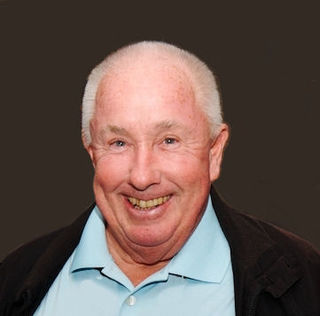This article needs additional citations for verification .(November 2007) |

A hobby shop (or hobby store) sells recreational items for hobbyists.
This article needs additional citations for verification .(November 2007) |

A hobby shop (or hobby store) sells recreational items for hobbyists.
Classical hobby stores specialize in modelling and craft supplies and specialty magazines for model airplanes (military craft, private airplanes and airliners), model trains (locomotives, rolling stock, track, power packs and accessories), ship models, house and building models. Some hobby shops sell R/C cars, pinewood derby kits, [1] boats, and model or remote control planes.

Some hobby shops may also sell dolls, figures, and collectible coins and stamps.

A subtype of hobby shop is a game store, which sells jigsaw puzzles, card and board games and role playing games. Such stores sometimes may also contain community space for hobbyists (gamers) to mingle and play games. In recent years, board and card game hobby shops have often become part-cafes. [2] [3] [4]
Another subtype of hobby shop is the computer store, which sells computers, software, services, and training. Computer hobby shops have traditionally sold computers, related network equipment, and services, more often than not, they are selling training in software like Adobe PhotoShop, Autodesk 3ds, web design and other creative software pursuits. As technology continues to evolve, the post "dot com" computer hobby shops have transformed these equipment and services to hands-on training environments where people gather and learn from one another. This is because several people who work in technology also have it as a hobby.

Board games are tabletop games that typically use pieces. These pieces are moved or placed on a pre-marked board and often include elements of table, card, role-playing, and miniatures games as well.

A hobby is considered to be a regular activity that is done for enjoyment, typically during one's leisure time. Hobbies include collecting themed items and objects, engaging in creative and artistic pursuits, playing sports, or pursuing other amusements. Participation in hobbies encourages acquiring substantial skills and knowledge in that area. A list of hobbies changes with renewed interests and developing fashions, making it diverse and lengthy. Hobbies tend to follow trends in society. For example, stamp collecting was popular during the nineteenth and twentieth centuries as postal systems were the main means of communication; as of 2023, video games became more popular following technological advances. The advancing production and technology of the nineteenth century provided workers with more leisure time to engage in hobbies. Because of this, the efforts of people investing in hobbies has increased with time.

The TRS-80 Micro Computer System is a desktop microcomputer launched in 1977 and sold by Tandy Corporation through their Radio Shack stores. The name is an abbreviation of Tandy Radio Shack, Z80 [microprocessor]. It is one of the earliest mass-produced and mass-marketed retail home computers.
Tandy Corporation was an American family-owned leather-goods company based in Fort Worth, Texas, United States. Tandy Leather was founded in 1919 as a leather supply store. By the end of the 1950s, under the tutelage of then-CEO Charles Tandy, the company expanded into the hobby market, making leather moccasins and coin purses, making huge sales among Scouts, leading to a fast growth in sales.

A wargame is a strategy game in which two or more players command opposing armed forces in a simulation of an armed conflict. Wargaming may be played for recreation, to train military officers in the art of strategic thinking, or to study the nature of potential conflicts. Many wargames re-create specific historic battles, and can cover either whole wars, or any campaigns, battles, or lower-level engagements within them. Many simulate land combat, but there are wargames for naval and air combat, as well.

The Family Computer Disk System, commonly shortened to the Famicom Disk System, or just Disk System, is a peripheral for Nintendo's Family Computer home video game console, released only in Japan on February 21, 1986. It uses proprietary floppy disks called "Disk Cards" for cheaper data storage and it adds a new high-fidelity sound channel for supporting Disk System games.

Mong Kok is an area in Kowloon, Hong Kong. The Prince Edward subarea occupies the northern part of Mong Kok.

Miniature wargaming is a form of wargaming in which military units are represented by miniature physical models on a model battlefield. The use of physical models to represent military units is in contrast to other tabletop wargames that use abstract pieces such as counters or blocks, or computer wargames which use virtual models. The primary benefit of using models is aesthetics, though in certain wargames the size and shape of the models can have practical consequences on how the match plays out.

An Internet café, also known as a cybercafé, is a café that provides the use of computers with high bandwidth Internet access on the payment of a fee. Usage is generally charged by the minute or part of hour. An Internet café will generally also offer refreshments or other services such as phone repair. Internet cafés are often hosted within a shop or other establishment. They are located worldwide, and many people use them when traveling to access webmail and instant messaging services to keep in touch with family and friends. Apart from travelers, in many developing countries Internet cafés are the primary form of Internet access for citizens as a shared-access model is more affordable than personal ownership of equipment and/or software. Internet cafés are a natural evolution of the traditional café. As Internet access rose many pubs, bars, and cafés added terminals and eventually Wi-Fi hotspots, eroding the distinction between the Internet café and normal cafés.

Tabletop games or tabletops are games that are normally played on a table or other flat surface, such as board games, card games, dice games, miniature wargames, or tile-based games.

Online shopping is a form of electronic commerce which allows consumers to directly buy goods or services from a seller over the Internet using a web browser or a mobile app. Consumers find a product of interest by visiting the website of the retailer directly or by searching among alternative vendors using a shopping search engine, which displays the same product's availability and pricing at different e-retailers. As of 2020, customers can shop online using a range of different computers and devices, including desktop computers, laptops, tablet computers and smartphones.
Doujin soft is software created by Japanese hobbyists or hobbyist groups, more for fun than for profit. The term includes digital doujin games (同人ゲーム), which are essentially the Japanese equivalent of independent video games or fangames.

A custom built or home-built computer is a computer assembled by its user and made of commercial off-the-shelf (COTS) components, rather than purchased as a complete and ready to use machine, also known as a "pre-built" or out-of-the-box system.

Paul Terrell is an American businessman. In December 1975, he founded Byte Shop, the first personal computer retailer shop. He helped popularize personal computing to the hobbyist and home computing markets, and was the first retailer to sell an Apple Computer, the Apple I.

Computer City was a chain of United States-based computer superstores operated by Tandy Corporation; the retailer was sold to CompUSA in 1998 and was merged into the CompUSA organization.

Asmodee is a French publisher of board games, card games and role-playing games (RPGs). Founded in 1995 to develop their own games and to publish and distribute for other smaller game developers, they have since acquired numerous other board game publishers. A division, Twin Sails Interactive, publishes video game adaptations of Asmodee games.

Paper models, also called card models or papercraft, are models constructed mainly from sheets of heavy paper, paperboard, card stock, or foam.

A tabletop role-playing game, also known as a pen-and-paper role-playing game, is a classification for a role-playing game (RPG) in which the participants describe their characters' actions through speech, and sometimes movements. Participants determine the actions of their characters based on their characterization, and the actions succeed or fail according to a set formal system of rules and guidelines, usually containing Dice-Rolling. Within the rules, players have the freedom to improvise; their choices shape the direction and outcome of the game.
In the video game industry, digital distribution is the process of delivering video game content as digital information, without the exchange or purchase of new physical media such as ROM cartridges, magnetic storage, optical discs and flash memory cards. This process has existed since the early 1980s, but it was only with network advancements in bandwidth capabilities in the early 2000s that digital distribution became more prominent as a method of selling games. Currently, the process is dominated by online distribution over broadband Internet.

A board game café is a type of café in which patrons play board and card games while being served food and drink. Customers usually pay an entry fee or rent a table in order to access a large library of games and instruction from the staff on how to play them. Many board game cafés also sell the games.
{{cite journal}}: CS1 maint: DOI inactive as of January 2024 (link)